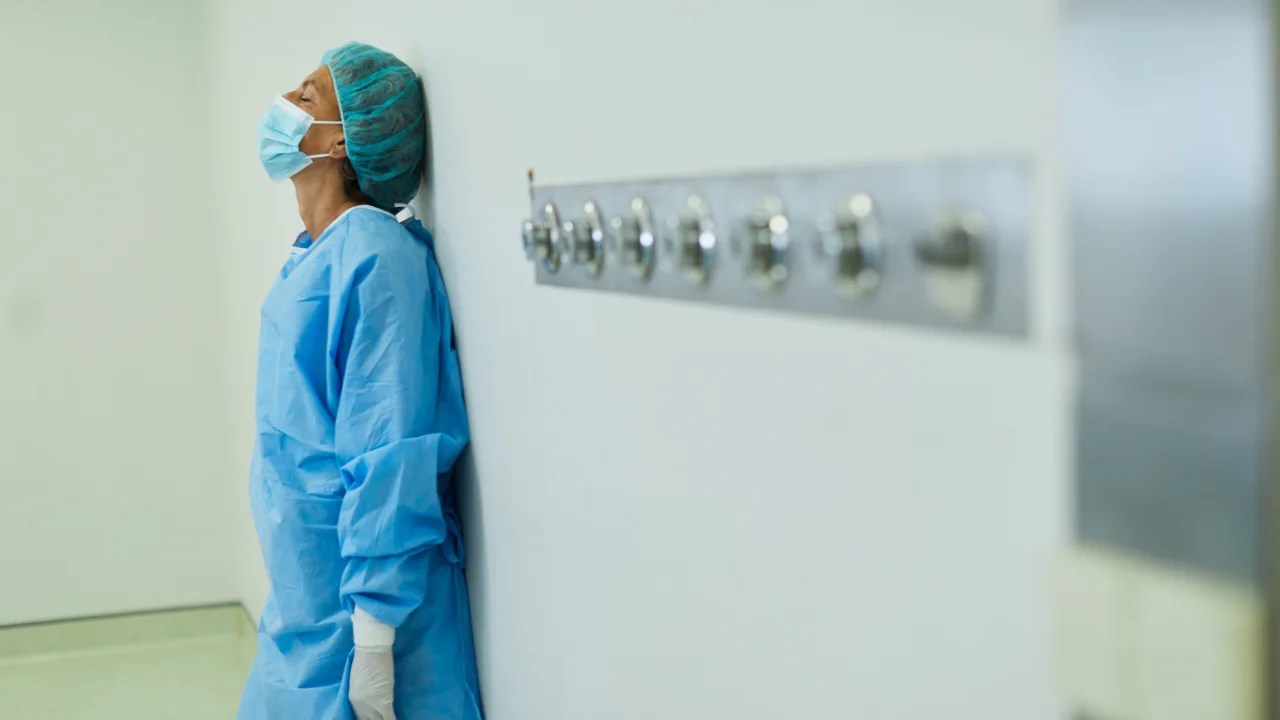Health experts in the US are really worried about the mental health of healthcare workers all over the country. They did a big study from 2018 to 2022 and found out that almost half of these workers felt very tired and stressed in 2022. This is a big increase from four years ago, when it was less than a third. The study also showed that healthcare workers are having a tougher time with their mental health compared to people in other jobs.
This news comes after the biggest strike of healthcare workers in US history. 75,000 workers from Kaiser Permanente, a big health company, went on strike in five states and Washington D.C. They said they felt really tired and there weren’t enough staff to help patients.
Dr. Debra Houry, who is in charge of medical matters at the CDC, said that right now, it’s our healthcare workers who need help. Even before the pandemic, their jobs were really hard. They worked long hours, faced infectious diseases, and sometimes had difficult conversations with patients and families.
Studies have shown that healthcare workers, especially nurses and support staff, are more likely to struggle with thoughts of suicide compared to people in other jobs.
Taking care of sick people can be very tough emotionally. Dr. Houry shared that she remembers some really hard cases, like telling someone their loved one had a serious illness, or not being able to save a young child after a car accident. After these tough days, she had to come home and take care of her own family, and sometimes she didn’t take enough care of herself.
The Covid-19 pandemic made things even harder for healthcare workers. They had more patients, longer hours, and not enough supplies. This made mental health problems, thoughts of suicide, and substance abuse issues go up, just like in a big part of the adult population in the US.
The study showed that between 2018 and 2022, healthcare workers said they felt worse mentally. Almost half of them, 44%, said they wanted to find a new job. This was up from 33% in 2018. On the other hand, fewer other essential workers wanted to change jobs during the same time.
The CDC report shows that when health workers face harassment, it really affects their mental health. Those who said they were harassed were much more likely to feel anxious, about five times more likely compared to those who weren’t. They were also over three times more likely to feel depressed and almost six times more likely to feel burned out.
For example, 85% of those who were harassed felt anxious, while only 53% of those who weren’t harassed felt this way. Also, 60% of those who experienced harassment felt depressed, which is almost twice as much as those who didn’t face harassment.
But the report says that these bad effects can be prevented if workplaces have better rules and practices. The study also found that if health workers trust their bosses, have enough time to do their work, and get support from their supervisors, they’re less likely to feel burned out.
Casey Chosewood, who leads the National Institute for Occupational Safety and Health’s Office for Total Worker Health, said, “We’re asking bosses to really pay attention to this and take actions right away. Workplaces that are supportive make a positive difference for health workers.
The report suggests that bosses should involve all employees in making decisions. It found that when health workers helped make decisions, they were about half as likely to feel depressed. Chosewood, who leads the National Institute for Occupational Safety and Health, also advised supervisors to keep an eye on staffing and take harassment reports seriously.
In the coming months, the CDC’s National Institute for Occupational Safety and Health plans to start a big effort to help hospital leaders support the well-being of health workers. This is part of their ongoing work to make people aware of the mental health struggles of health workers.
Chosewood emphasized, “We need to take the information we have and do something about it. Calling our current and long-lasting problem a ‘crisis’ doesn’t fully capture it. Our communities, and all of us, will be better off when our health workers are doing well.
SOURCE:CNN

